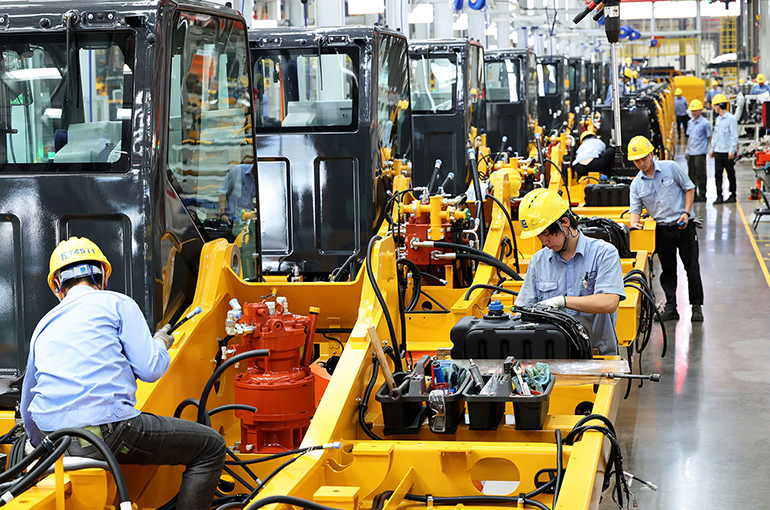 China's Factory Activity Contracts for Fifth Consecutive Month in August Despite Slight Recovery
China's Factory Activity Contracts for Fifth Consecutive Month in August Despite Slight Recovery(Yicai) Sep. 1 -- Activity in China's manufacturing sector contracted for the fifth month in a row in August despite showing signs of improvement as the impact of natural disasters weakened and the anti-vicious competition policy continues to be implemented.
The manufacturing purchasing managers' index came in at 49.4 last month, up from 49.3 in July, according to data released by the National Bureau of Statistics yesterday. It was 49.7 in June, 49.5 in May, and 49 in April. A reading below 50 indicates contraction.
The manufacturing PMI's sub-index for production increased to 50.8 from 50.5 in the period. "This shows that manufacturing production has picked up pace," said Zhao Qinghe, a senior statistician with the NBS.
The sub-indexes for raw material purchase prices and ex-factory prices both rose for the third consecutive month in August. They climbed to 53.3 and 49.1, respectively, from 51.5 and 48.3 in July, NBS data showed.
China's recently introduced anti-vicious competition policy has affected market expectations, and prices of bulk commodities, such as coal and steel, have risen, Wang Qing, chief macroeconomic analyst at Golden Credit Rating International, told Yicai. This is the main reason for the increases in the raw material purchase prices and ex-factory prices sub-indexes, he added.
Despite the signs of improvements, the manufacturing PMI remained below the boom-bust line in August for the fifth consecutive month, said Zhang Liqun, a special analyst of the China Federation of Logistics and Purchasing. China should increase the intensity of counter-cyclical regulations of macroeconomic policies and expand investment in public goods and services, he noted.
A buildup of positive factors is expected to drive improvements in the economy, said Wen Tao, an analyst at the China Logistics Information Center. The Chinese macroeconomy will continue its steady recovery, supported by favorable momentum, manufacturing demand will stabilize and show signs of rebound, enterprises' production activities will expand, raw material prices will increase, and product sale prices will stabilize, he added.
The non-manufacturing PMI, which includes the construction and services sectors, continued to expand in August, with improved supply-demand relations and stable prices. It rose to 50.3 from 50.1 the previous month.
The services PMI rose 0.5 point to 50.5, the highest so far this year. Meanwhile, the construction PMI fell 1.5 point to 49.1, mainly affected by adverse factors, such as high temperatures and heavy rains.
The composite PMI output index, which combines the production sub-index of the manufacturing PMI and the non-manufacturing PMI, rose to 50.5 from 50.2, indicating that the overall expansion in Chinese enterprises' production and operation activities accelerated.
Editor: Futura Costaglione